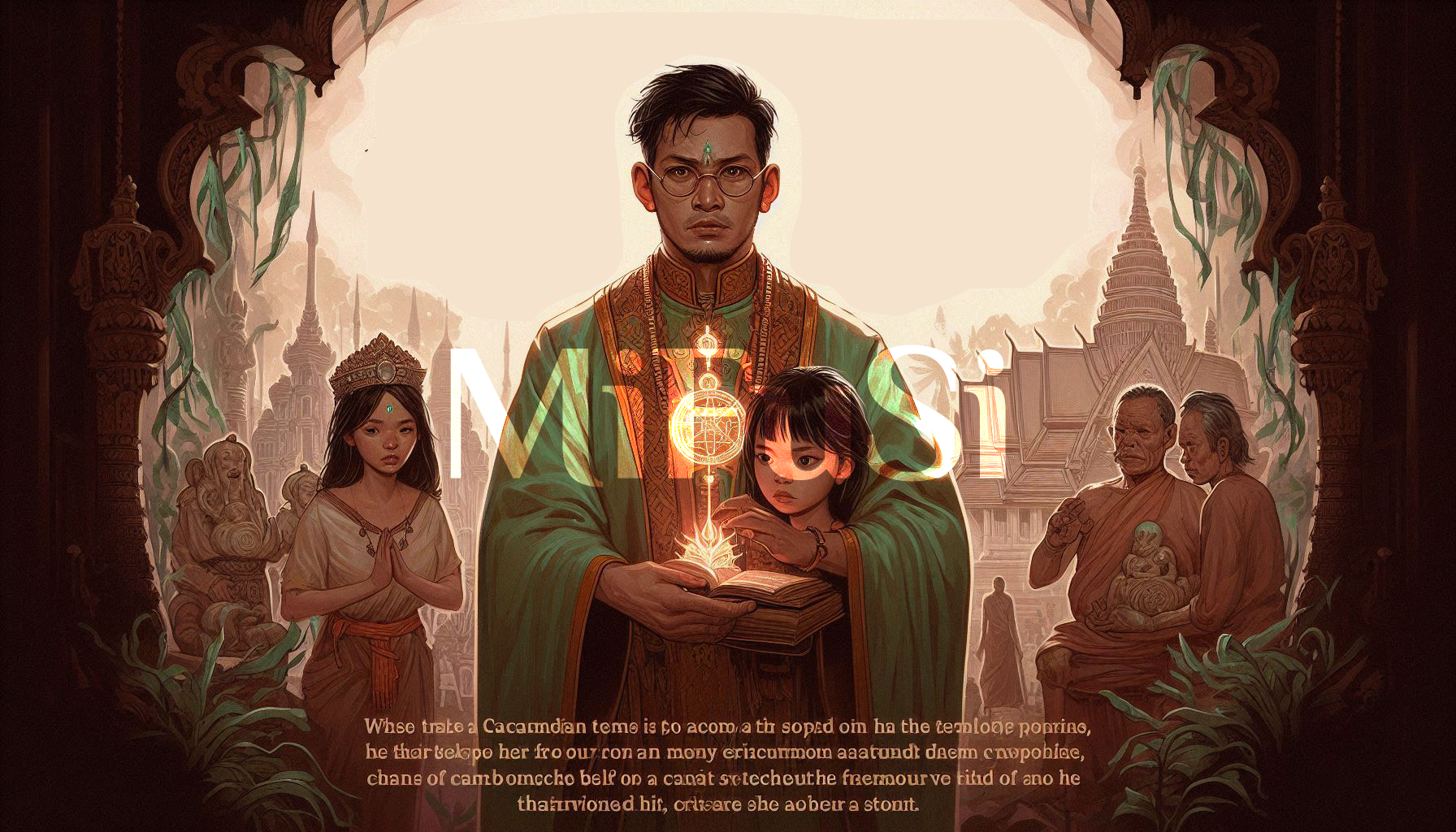Principles of Exorcism
NGUYÊN LÝ TRỪ TÀ; by Lĩnhnam on Sun Jul 05, 2009 2:20 pm.
Presented below is the principle of exorcism as taught to me by Master Duc Qui, based on the story Four-Direction Monks by Atoanmt and posted on thegiovohinh.com. Here is a summarized version.
Atoanmt is a disciple of the Occult. He learned exorcism at the Temple of Monks by chance. Once, in Bac Lieu province, he stayed at a friend’s house and cured their daughter of an acute stomach ache using a charm. His friend then introduced him to a Cambodian family whose daughter was believed to be possessed by a wandering ghost. Despite seeking help from many Cambodian temples, their daughter remained afflicted by what was believed to be a wandering ghost. So they brought her to him for an exorcism.
Initially, Atoanmt suspected the girl was mentally ill and questioned her thoroughly. While she initially responded normally, she suddenly attacked him. He managed to evade her grasp and swiftly seized her wrist using a specific hand gesture called a Mudra ¹. Then, he recited a mantra to ‘lock’ the ghost inside her body, preventing it from leaving. This method aimed to frighten the ghostothe, making it beg for mercy and dissuading it from returning to possess the girl again. Atoanmt explained that this approach prevents the ghost from harboring resentment towards him, which often happens when shamans threaten or use force against the spirit.
The ghost appeared unfazed by the Mudra he applied to her wrist. Instead, she complimented his skills and demanded to be given a chicken. Threatening to harm the girl if her request wasn’t met, she banged her head repeatedly against the wooden bed. The shaman, unsure of what to do, witnessed the girl’s father attempting to restrain her, only to be swiftly knocked to the ground by her powerful blow.
The hostess hurried to the kitchen and returned with a chicken she had prepared for the shaman’s dinner. As the girl devoured the chicken, the shaman puzzled over why his charm had failed. He considered consulting his Exorcist rituals manual but hesitated. Suddenly, the ghost began to cry and pleaded with the shaman to help her leave the girl’s body. Surprised yet relieved, the shaman recited another mantra intended to free the ghost. However, the ghost continued to cry and beg for forgiveness, bowing to him repeatedly. The ghost explained that she was unable to leave because Four Gods were guarding the four corners of the house.
This revelation puzzled Atoanmt, as it wasn’t mentioned in the Exorcist ritual. He struggled to find a solution until the ghost suggested praying to the Gods and asking them to leave. Recalling a mantra to invoke the Gods, he recited it uncertainly. Following the recitation, he advised the ghost to seek refuge in a temple, where she could listen to sutra recitations to facilitate her reincarnation. Finally, the ghost departed from the girl’s body, prompting applause and admiration for the shaman’s abilities. He marveled at the effectiveness of the charms and spells he had employed in the exorcism.
…….
Comments:
Atoanmt, the shaman in the story is inexperienced in the occult field and still learning, leading to misunderstandings about exorcism. In reality, what may seem like unauthorized evil possession and the need for exorcism is a scenario orchestrated by the local Gods, who collaborated with the ghost or devil, involving the shaman in the process. The shaman had a basic understanding of charms and spells but lacked knowledge about exorcism. Unaware that he was part of a larger scheme orchestrated by the supernatural realm, he believed the possession was genuine and that his charms and spells were effective against the ghost. However, he played a passive role, acting only upon the Gods’ suggestions. His success or failure depended on divine intervention, and he had no control over the ghost’s actions, which alternated between praise and reprimand. Despite believing he was an exorcist, he was in truth being instructed and gaining hands-on experience with evil possession. He observed the ghost’s actions and behavior firsthand, as she guided him in his role as a shaman for others to witness. For instance, she admitted defeat unexpectedly when he was feeling desperate, and hinted at him to request the departure of the Great Celestial Kings, of whose presence he was unaware.
However, an experienced shaman would recognize that no Great Celestial Kings were present. It’s a common tactic for ghosts to exaggerate to flatter the ego of the shaman, making him feel important. If the shaman believes the ghost and thinks he has the power to summon such celestial beings, he could succumb to vanity. As the Vietnamese saying goes, “Flies die from sweet honey.” In this case, the shaman was given sweet honey that might lead to his downfall should his vanity become too inflated.
Both cases, exemplified by disciple MThien, underscore a fundamental misinterpretation of supernatural phenomena. While MThien’s genuine vision of Buddhas appearing at his altar demonstrated his spiritual connection, his mistaken belief in his ability to invoke the Buddhas in Ten Directions was fundamentally wrong. Atoanmt’s conviction that he could summon the Four Great Celestial Kings exposes a profound ignorance of spiritual realities. Judging by their spiritual levels, virtues, and merits, they are powerless to summon even lower gods and spirits, let alone claim to invoke the Four Great Celestial Kings or the Buddhas in Ten Directions. It’s as improbable as a common citizen summoning Secretaries of State to perform tasks for them at their homes. The truth is that Atoanmt, the shaman, and disciple MThien were merely “hired” by local village gods who operate under the Deities, rather than the other way around.” This widespread misconception is often perpetuated by psychics and mediums who claim to communicate with higher beings when, in reality, they are engaging with genies and spirits from the lower realm.
To truly master the occult, one must grasp a fundamental principle: Genies, demons, or lesser spirits all serve the will of Heaven (GOD) in their respective localities. This principle has been demonstrated through various plays enacted by the gods and demons, titled “Devil Possession and Exorcism,” which have been witnessed across different cultures and religions worldwide. However, shamans, sorcerers, priests, and monks from diverse religious backgrounds, who have engaged in exorcism rituals, often fail to discern the underlying truth behind these phenomena. This is largely due to their vanity and inflated egos, which prevent them from being open to learning and understanding beyond their own beliefs.
Let’s quote view topic “The Nomination of the Gods and Mysticism” from Master Duc Qui and hear his teachings about Exorcism.
Upon seeing me, the adopted son immediately became possessed, strongly reproaching me for my intention to assist his father. The malevolent spirit theatrically manifested through the son’s actions, pretending to resist and attack me. Drawing on my expertise in mysticism and understanding the spirit’s performance, I assumed the role of an exorcist. I formed the Cundi mudra (hand gestures symbolizing divine authority), directing a supernatural force towards the son. The boy, seated on a wooden board, theatrically tumbled to the ground with a loud bang, feigning unconsciousness.
Approximately five minutes later, another spirit took on a serious and distinguished demeanor within the son. This spirit demanded compensation for the life of his disciple, whom I had seemingly “taken his life” with the Cundi mudra.I assumed a role of explanation and justification, feigning sincerity as I promised to resurrect his disciple. The Spirit seemed content, nodding in approval. Standing before the altar, I vocalized a prayer for the entire family to hear, invoking the divine protection of The God Above and the Buddha in the ten directions. Guided by a supernatural force, my hands gestured as if sweeping the air toward the spot where the son had theatrically fallen. To everyone’s amazement, the Peacock promptly revived. The Spirit, now embodied as a peacock, displayed gestures of submission and admiration towards me.
That was a great production played by great actors!
Master Duc Qui asserts that he is the main actor in the above play because he has thoroughly understood the metaphysical principles governing exorcism. As a Mystic Emissary, ll he did in casting out demons was to act the role of an Exorcist with the full support and coordination of Deities and Demons. He taught us the following principles:
“Once you understand the principle behind exorcism, there is no need for any Mantra, Mudra, charms, or spells, you only need to point the finger at the devil and order him to fall he will fall; if you tell him to sit, he will sit. This is because the Mystic Emissary holds the key role in the play while the devil and the gods play a passive role which is to fully cooperate and comply with anything he asks them to do. For instance, when the High Priest commands the demon to be bound, it will behave as if it is restrained by invisible ropes. Similarly, if the order is for the Divine Guardians of the Law to restrain or torture the demon, it will react as if being subjected to torment. It’s important to emphasize that there is no requirement for mantras, mudras, or other symbols as weapons against the devil. The Mystic Emissary simply needs to issue commands, and the gods and demons will execute them accordingly.”
Through the scenarios of casting out demons, the deities punish shamans, sorcerers, monks, and priests who are hypocrites, those who exploit religion for personal gain, and those who hold disdain for genies and demons. Depending on the severity of their offenses, they may suffer insults, humiliation, or even physical harm from the demons. The extent of the injuries inflicted correlates with the seriousness of the crime committed. Ultimately, those exorcists who lack virtue, wisdom, and humility, and who misuse the name of God for their selfish ends, will face death at the hands of the demons, under the authority of the deities.
Master Duc Qui has articulated a principle that has eluded shamans and exorcist priests of various religions thus far due to their lack of wisdom and insight into heaven’s will. Similarly, the shaman in the story ‘The Temple of Monks’ was unaware that he was unwittingly participating in a play of exorcism, driven solely by his religious devotion. The gods permitted him to gain further knowledge about the supernatural and even complimented him, in a bid to encourage his spiritual growth.
When I get the opportunity, I’ll share the details of a renowned exorcism conducted by Master Duc Qui that caused a stir throughout the town. The incident involved numerous shamans and monks from various temples, including the revered Holy Cao Dai² temple. The commotion was so intense that the town’s public broadcasting services had to intervene, using loudspeakers to quell rumors and superstitions. The events surrounding the exorcism unfolded like a dramatic saga orchestrated by the Deities and Demons, spanning an entire month. Its purpose was to introduce a Spiritual Teacher to practitioners of all religions, as well as mystics and laypeople in the province.
However, just like watching a performance by world-famous magicians, our fascination with unbelievable magic persists until we uncover the tricks behind it. Once the secrets are revealed, the show loses its allure. Similarly, I’m hesitant to divulge all the secrets behind the Magic of Exorcism and spiritual illnesses. If these secrets are widely known, the excitement and awe surrounding these phenomena may diminish, potentially leaving the Gods and Demons without a role. Therefore, let those with wisdom discover these secrets on their own. Heaven’s plan cannot be revealed too much. I hope that my religious friends will diligently practice their faith and gradually gain a deeper understanding of the principles governing Exorcism. This field has caused great turmoil and anguish among priests of various religions, as well as the common people.
___________________
Mudra¹: hand gestures often accompany the utterance of a mantra (magic formula), in Sanskrit it means Seal, and is a nonverbal mode of communication with the Deities. Mudra also symbolizes Divine Powers.
Cao Dai²: a religion founded in 1926 in South Vietnam, Cao Dai means High Tower. (Wikipedia)
Related Post
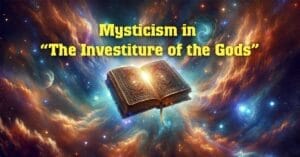
YUN ZHONG ZI OFFERS THE MAGIC SWORD
Yun Zhong Zi is an Immortal residing in Chung-Nam Mountain. One day, while gathering herbs, he noticed an evil aura...

JIANG ZIYA – FORTUNE TELLING
This chapter refers to the time when Ziya used his magic power to get rid of the five demons, and...
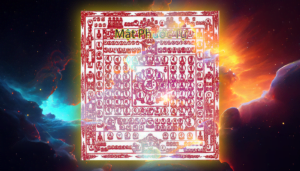
Chapter I: I – Notions of Secret Buddhism (Part 1/6)
This sect is called Secret Buddhism or Secret Doctrine for the following reasons: I. The Founder of Secret Buddhism. The...
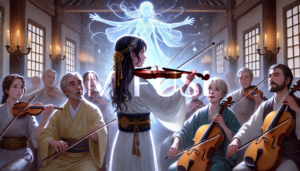
A Violin Performance by Divine Force
A Violin Performance by Divine Force LÀM ĐẠO VỚI CÂY ĐÀN VIOLIN posted by viendung on 07 Apr 2017, 12:04,...
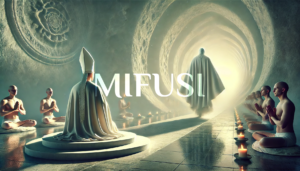
Wish Fulfilling Yantra #28 – Conversation with a lama
Wish Fulfilling Yantra #28 – Conversation with a lama TCTĐ số 28: đàm đạo với “pháp vương” by thachanhtrang on...
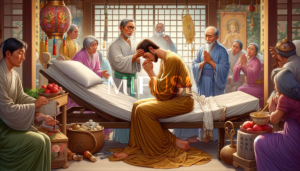
A Miraculous Healing
A Miraculous Healing Ân phước được chữa bệnh posted by brightmoon - 16 Tháng 8 2018, 19:50, translated by Horangi....
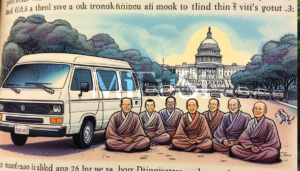
A section from my autobiography- treading the religious path
A section from my autobiography- treading the religious path: About 25 or 26 years ago, I and five other disciples...
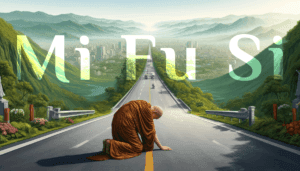
THREE BOWS – ONE SALUTE
In recent news from Tuổi Trẻ (Youth) newspaper, Venerable Thích Tâm Mẫn of Hoằng Pháp Pagoda commenced a pilgrimage from...
